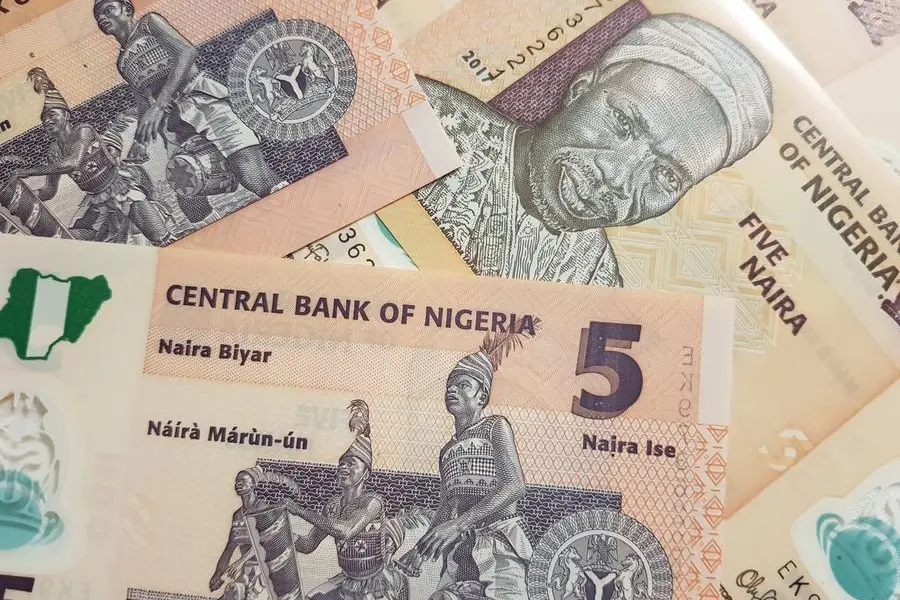PHOTO
A Lagos-based investment banking and advisory firm, Afrinvest (West) Africa Limited, has posited that sustaining the improvement in Foreign Portfolio Investment (FPI) could help support a near term easing in price and exchange rate pressures.
Although FPIs are less reliable in building sustainable FX buffers (due to their characteristic nature of flight to safety), the firm observed that the recent dynamics if sustained hold positive for stabilising the exchange rate in the short to medium term.
Recall that in the 2018 and 2019 periods when FPI inflows were at highs of $11.8 billion (c. N3.6 trillion) and $16.4 billion (c. N5.0 trillion), the external reserves averaged $44.6 billion and $49.2 billion while naira-dollar (NGN-USD) rate stabilized within an average band of N306.11/$ and N307.05/$ respectively.
Related PostsInvest in assets that retain value amidst high interest rate, scarce FX -Expert advisesProject cargoes litter Lagos ports as FX volatility bitesNaira depreciates to N1,416/$ at official market
This stabilised FX rate condition also rubbed off positively on the general price levels as inflation rate averaged 12.1 percent and 11.4 percent in these periods compared to record high of 24.5 percent in 2023 according to Afrinvest.
In the monthly Domestic and Foreign Portfolio Investment (DFPI) report published by the Nigerian Exchange (NGX) Limited, to gauge the level of recovery in Foreign Portfolio Investment (FPI) flows to Nigeria, “curiosity was fueled by the observation of a strong and positive correlation between FPI inflow data (reported by the NBS in USD) and foreign investor participation statistics (reported by the NGX in Naira), “ it stated.
This trend, according to Afrinvest, is not surprising given that equity is one of the three investment portfolio areas into which FPIs are deployed.
Historically, FPI contribution to annual total capital importation usually outweighs the other two sub-components, Foreign Direct Investment (FDI) and Other Investment (OI), save for 2016 and 2023 when OI dominated.
As per asset class distribution of the historical FPI inflows, money market instruments (51.0 percent) and equity (37.1 percent) are mostly preferred to bond instruments (11.9 percent), evidenced by their cumulative share of 88.1 percent of the $70.4 billion FPI in the reviewed period.
This preference pattern it said, is understandable, given that ease of asset liquidation and duration play usually tops the consideration of portfolio investors (typical “hot money” strategy), especially when investing in emerging markets with a high risk of exchange rate volatility.
According to the DFPI report by the NGX, foreign investors’ participation on the domestic bourse improved seven basis points (bps) month on month (m/m) in May to 34.97 percent – the highest since November 2021 at 35.45 percent.
“ At the current run rate, the size of foreign participation on the bourse should reach N1.1 trillion by year-end, translating to a 267.8 percent y/y increase and the highest Naira value since 2018 at N1.2 trillion.
“Precisely, the relaxation of capital controls (which led to payment of FX backlogs worth c.$4.8 billion) and financial repression tactics adopted under the last CBN regime (negative real return has narrowed to around 6.5 percent on a 364-days NT-Bills compared to well over 10.0 percent under previous CBN management) supported the improved sentiment.
“In addition, Naira assets are currently very attractive to FPIs given that the NGN-USD exchange rate has bottled by about 68.9 percent over the last 12 months. As such, we estimate that total FPIs (equities, money, and bond markets) could swell fourfold to $5.2 billion in 2024 in a base case scenario, “ it explained.
Copyright © 2022 Nigerian Tribune Provided by SyndiGate Media Inc. (Syndigate.info).




















